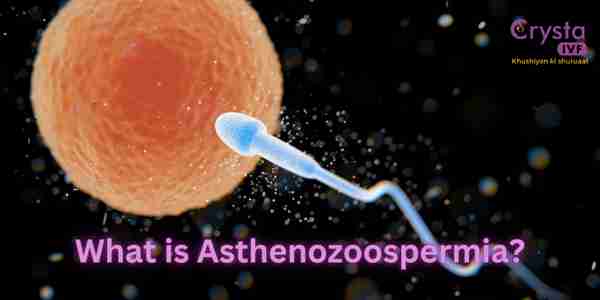What is Asthenozoospermia?
Achieving fatherhood can feel like a marathon for some men, and asthenozoospermia can throw a wrench into those plans. This condition, characterized by sluggish sperm, can make it difficult for those little swimmers to reach their destination—the egg. But fear not; there are ways to get your sperm squad moving at peak performance. Here's a roadmap to consider:
Fixing the Fundamentals:
Infection Eviction: Sometimes, a hidden enemy—a genital tract infection—might be behind the sluggish sperm. Antibiotics can act like bouncers, kicking out the infection and potentially improving sperm motility.
Varicocele Vanquishing: Imagine a congested highway—that's what a varicocele, enlarged veins in the scrotum, can do to sperm production and movement. Surgical intervention can be a solution, creating a smoother path for sperm.
Hormonal Harmony: Hormones are like the conductors of the sperm orchestra. If testosterone or other hormones are out of whack, medications can help restore balance and get the sperm moving in sync.
Supercharging Sperm Strength:
Lifestyle Tune-Up: Think of sperm as elite athletes. Smoking, excessive alcohol, and obesity can be like performance-depleting drugs. Making healthy lifestyle changes—think exercise, a balanced diet, and maintaining a healthy weight—can significantly improve sperm motility.
Supplement Support: Antioxidants like vitamins C and E, along with CoQ10, might be like a power-up for sperm in some cases. However, discuss with your doctor before adding any supplements to your routine, as some may interact with medications.
Frequent Ejaculation: Unlike waiting for the Olympics every four years, frequent ejaculation (every 2-3 days) can be beneficial. It helps clear out older, less motile sperm, making way for a fresher, more vigorous batch.
Advanced Options: Assisted Reproductive Techniques (ART):
In some cases, where sperm motility is severely compromised, achieving pregnancy naturally might be a challenge. ART procedures like:
Intrauterine Insemination (IUI): This is like giving the sperm a VIP pass. Washed, motile sperm are placed directly into the uterus, bypassing the cervix and increasing the chances of fertilization.
In Vitro Fertilization (IVF) with Intracytoplasmic Sperm Injection (ICSI): IVF takes fertilization outside the body. With ICSI, a single sperm is like a superhero—it gets injected directly into the egg, bypassing the need for strong sperm motility.
Remember, this is just a personalized map, and the best asthenozoospermia treatment will depend on your specific situation. Consulting a urologist or fertility specialist is like having a seasoned navigator on your side. They can diagnose the cause, explore treatment options, and ultimately help you achieve your dream of fatherhood.
Visit: https://crystaivf.com/blogs/as....thenozoospermia-caus
